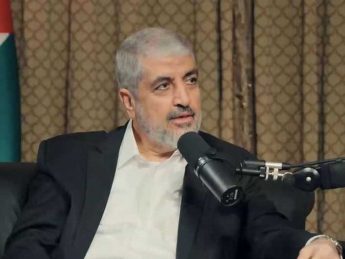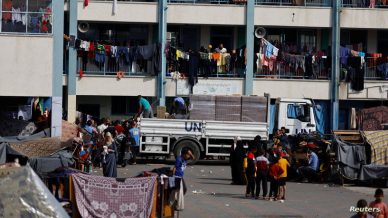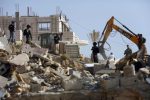Head of Hamas’s political bureau Ismail Haneyya has affirmed that his Movement is seeking a common denominator with other factions to preserve the national rights and the aspirations for the establishment of the Palestinian state.
In a news conference held in Gaza on Thursday Haneyya said “Hamas defines its priorities as a national liberation movement that accepts pluralism came to power democratically and believes in democracy pluralism and peaceful transfer of power.”
“The Movement took part in union municipal and legislative elections and accepts what is decided by the people through the ballot box” he added.
The Hamas official said the highest priority for Hamas is to restore the national unity stressing that the Movement proved its seriousness more than once through signing many agreements in this regard and giving up its constitutional right to form a government in order to allow the formation of a national unity government.
He accused Fatah and the Palestinian Authority of not having dealt seriously with the signed agreements and not responding to Egyptian efforts to have a unity government formed reiterating his Movement’s readiness to make concessions and pave the way for ending the division without harming the national constants.
In another context Haneyya renewed his Movement’s rejection of next week’s US-sponsored Middle East economic conference in Bahrain as it would amount to Arab “normalization” of ties with Israel.
“We clearly express our rejection and non-acceptance of any Arab or Islamic country holding such a conference which constitutes normalization with the occupation” he said.
“We reject the Manama conference and the transformation of the Palestinian cause from a political cause to an economic cause” he emphasized.
He also appealed to Bahrain’s King Hamad not to host the event vowing protests across Palestine and abroad against the conference.
As for the recent mediated understandings with Israel he accused Israel of not honoring what had been agreed upon.
“The understandings today are in the danger zone due to the failure of the (Israeli) occupation to implement what was agreed upon.”














